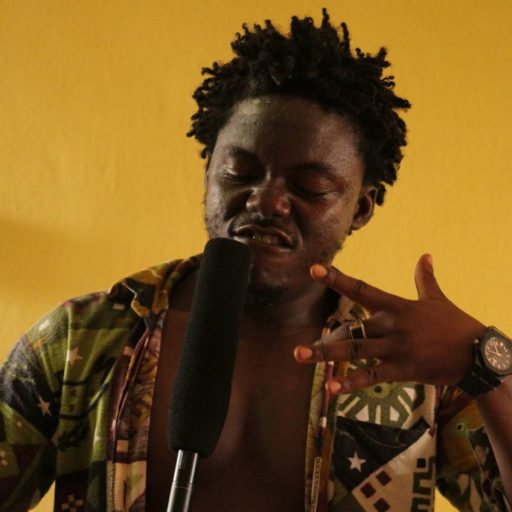“This is bad,” says Aisha. “Bad enough to asphyxiate language, flooding the chords with falsettos. Truth be told, nothing engages like print. Poetry when spoken, loses its charm, becomes toothless and lurks in the shadows, like an apparition. The flavouring is meagre and as such, a tragedy for the palate,” she continues.
“Is that really it then?” Bili asks, “Isn’t the poet, in his/her peculiar primacy, a rebel of circumstances? Doesn’t the higher nature, that greater calling, allow some room for choice? Well, this is mine, animated by vocal expression, the melody of its notes and the harmony of the perfect pitch. I’m sorry you do not see it my way.”
“I certainly don’t,” Aisha says, “No vicar worth his name will sanction this kind of adultery. I cannot imagine a world so maddened by transformation it spites the creative might of ages. Milton would be turning in his grave right at this moment.”
“Milton would be grateful,” Bili interjects, “If anything, my rendition of Paradise Lost has enlivened its message, the christening of the irreligious. The better angels of our nature owe their fidelity to me. I am the one who finally set them free.”
“The politics of attribution, eh? There are more studies of paradise lost across literary classes, more peer reviewed discussions and departmental curricula than there are audio recordings of Mandi Vundla playing in art festivals. Do you know why that is? Depth. One form has it and the other does not. One provides us sufficient cultural density to outlive its creators and the other is a rip off, an iteration of the long established.”
Click here“That the Neanderthal is excellent recreational material for anthropologists by no means suggests his superiority to us, Aisha,” Bili replies. “As languages evolve, so do the vehicles that convey them. The evolution of form, of everything really, is an incidental consequence of life. Do so or die and with the limits already set above. There is only one option, the one I have taken.”
“To vilify another is foolish. To repeat it is the function of a rogue. More, in this case there is no justification. Neanderthals certainly evolved, which is why through interaction, they birthed language better able to express their most pressing needs, to communicate without fetters. That march was upwards. Spoken word has lost the wings of yore, it is no longer in flight. What was once a fire-breathing dragon is now a contemptible wall gecko and even though it has reserved enough of its reptilian mien, it is now more prey than predator.”
“You must surely see that we have no place for relics. Whitman, for example, understood delivery and executed his form in free verse because patterns are merely waffles in an ice cream shop, ornamental, yet achieving little in the way of flavour. The soul is always what counts, not the body.”
“What you find in Whitman is an adaptation. Take away the rhyme but sprinkle the synaechdoche in stanzas, antonomasias where you must and litter the broth with metaphors,” replies Aisha. “What these ‘poets’ do is little more than spoken prose, the travesty of the modern touch! If only there could be a merger, a transposition of dynamics, allowing these dervishes an acquisition that truly counts, of the ballad or the ode. Only then can we truly call it an evolution.”
“Have it your way then,” Bili says, surrendering with a shrug.
“I certainly will,” concludes Aisha, smiling.

Luqman Hussain is a lawyer and poet. He is a graduate of Ahmadu Bello University and is
- Where one goes when home is taken from you? – #Luqman - November 29, 2023
- Poetry has a Human Tongue - March 3, 2021
- Fear is a Tonic – #Luqman - July 16, 2020

















I think this is really a beautiful piece of
writing. I tried to phantom in the
conversation but it is obviously not
possible to make sense in this classical
discuss. From my own perspective, i am not
the right person to critic. To me it’s perfect.
Thanks, Hauwa. Please share widely.